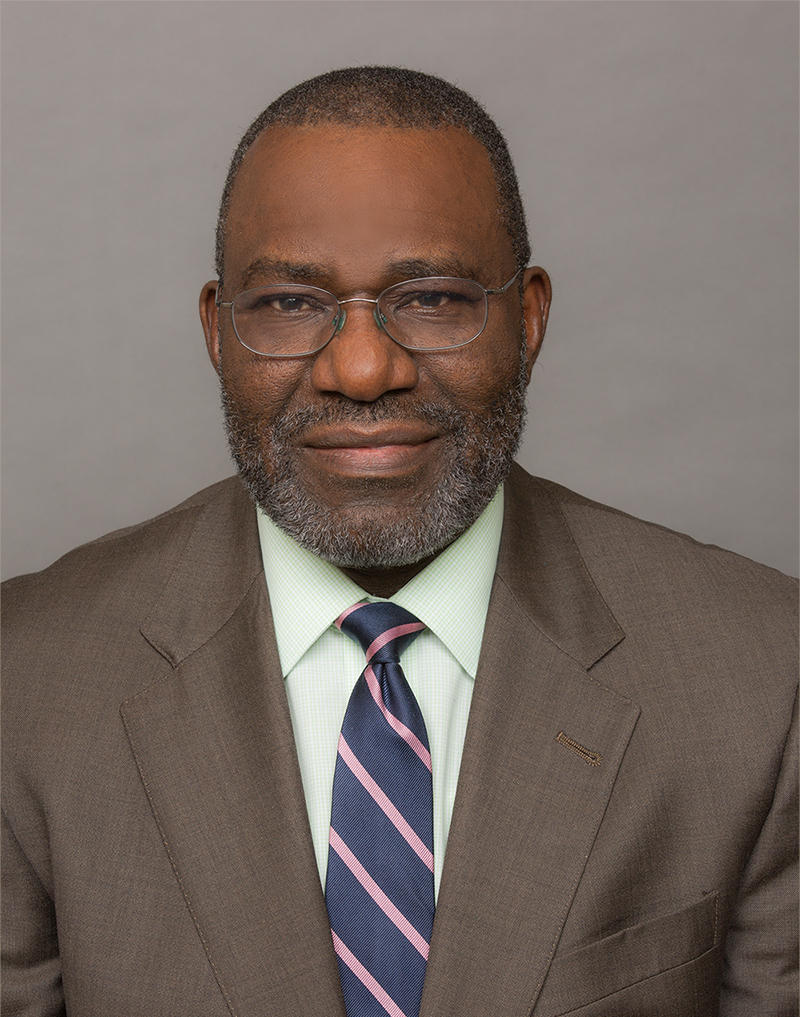Dr. Sunday Akintoye on Minimizing Complications of Oropharyngeal Cancer in African Americans
, by CRCHD Staff
Sunday Akintoye, B.D.S., D.D.S., M.S., is an associate professor and Director of the Oral Medicine Research Program and Master of Oral Health Sciences Program at The University of Pennsylvania School of Dental Medicine. In this conversation with the NCI Center to Reduce Cancer Health Disparities (CRCHD), Dr. Akintoye discusses his work to increase health equity, how past Continuing Umbrella of Research Experiences (CURE) grants helped advance his career, and the importance of Black History Month.
Please tell us about your R56 project and the potential impact of your research toward addressing cancer disparities/increasing health equity.
The R56 (R56CA283140) grant titled “Novel therapeutic approaches to remediate radiotherapy-induced bone necrosis” is another innovative approach to minimize oropharyngeal cancer (OPC) complications, especially in African Americans (AA), who have a much lower 5-year survival rate compared to Caucasians. Radiotherapy of OPC causes collateral damage to bone-forming progenitor cells in the jaw, resulting in osteoradionecrosis. Lower levels of circulating progenitor cells in AA is an established contributor to health disparities. When coupled with high jaw bone susceptibility to radiation damage, the AA OPC patient has higher disadvantage of developing osteoradionecrosis and poor OPC survival outcomes. This project will test the use of racially distinct jaw bone stem cells and a promising orally bioavailable insulin-like growth factor-1 to mitigate radiation bone damage. The project has the potential to impact how to prevent and treat complications of OPC therapies. It is expected to increase affordability and patient compliance, especially in underprivileged and low socioeconomic populations associated with the majority of the poor OPC survival outcomes.
How did you become interested in this area of cancer research?
My exposure to complications of head and neck cancers during my training and early years of my professional career opened my eyes to research questions that needed to be addressed. The obvious racial disparities in the patient demographics motivated me to pursue health disparities research.
Are there any role models or mentors—past or present—who have been an inspiration to you during your cancer research career?
At every stage of my training and career, I have been very lucky to have mentors who recognized my interest and enthusiasm and were more than willing to point me in the right directions.
You previously received the CURE K22 award and CURE K08 award. Now, looking back a few years later, how would you say these two awards impacted you and your career?
The NCI CURE K08 and K22 awards played key roles in building a foundation for my research career. There was a seamless transition from the K08 mentored career development award to the non-mentored K22 award. As a clinician-scientist involved in laboratory-based biomedical research, both awards helped to advance my career in cancer research and my promotion with tenure at my academic institution.
What does Black History Month mean to you?
It is gratifying and motivating that the month of February is set aside to celebrate the achievements of African Americans—whether historically or currently—making a difference in our world today. It is my hope that the next generation of African Americans will be motivated to strive for excellence.
